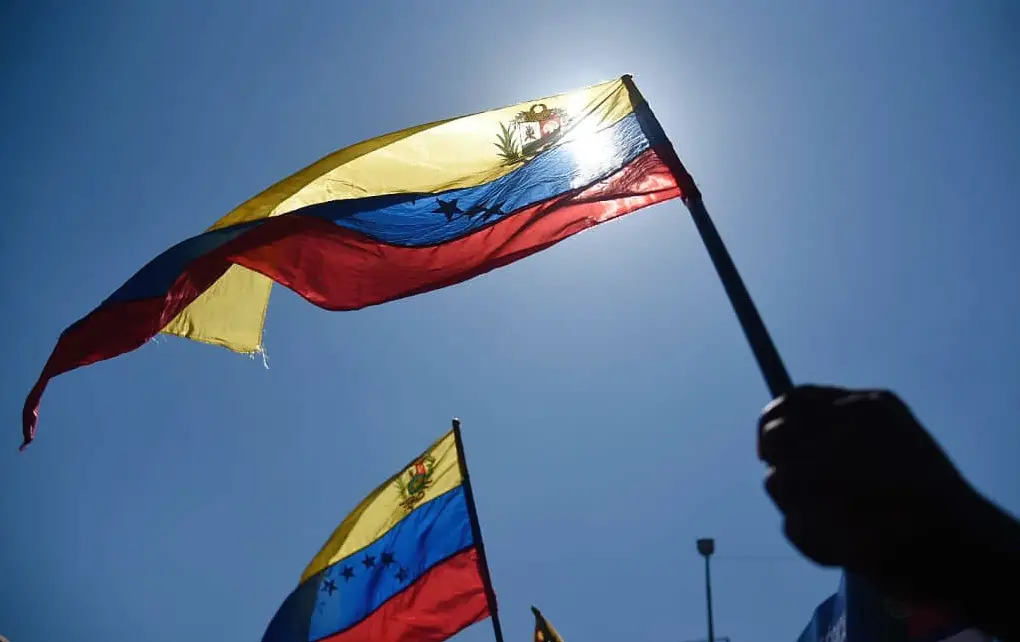Amid the uncertainty of the first weeks of 2025, where hopes for political change in the country are weakened due to low citizen mobilization caused by repression and political prisoners, the outlook is discouraging for those who support the reconstruction of democracy in Venezuela.
Additionally, geopolitical shifts led by the United States under Donald Trump, which have shaken the global liberal order and facilitated the establishment of a communication channel between Chavismo and the U.S. government, do not seem to contribute to the democratic cause either. Given this scenario, it is necessary to consider where Venezuela is headed and who will be the leaders of this new stage, especially since January 10, when Nicolás Maduro was sworn in for a third term.
Beyond the authoritarian and repressive context in which Venezuelan society as a whole clearly lives, there is a desire for change and leadership renewal that the country demands, including within Chavismo itself. After 26 years of a historical process led first by Hugo Chávez and then by Nicolás Maduro, the need for renewal is an unpostponable demand—one that applies equally to both government supporters and the opposition.
Elections as Moments of Legitimacy and Change
Within this situation, far from ideal for any democratic actor, new elections are once again being held in Venezuela. On Sunday, April 27, elections are set to be held to elect legislators for state legislative councils, as well as deputies for the National Assembly and more than 24 governors, including a governor for the newly established state of Esequibo.
María Corina Machado has stated that until Edmundo González’s victory in the July 28, 2024, presidential election “comes into effect,” the political sector she represents cannot participate in any future elections.
Meanwhile, the ruling party seeks to renew its leadership ranks. PSUV Vice President Diosdado Cabello called for the last week of January to hold popular assemblies to identify, together with the party’s grassroots, candidate proposals for the National Assembly, mayoral, and gubernatorial elections. This appears to be an attempt to reduce the discretionary nature of candidate selection, a characteristic of the ruling party since the era of Hugo Chávez.
In this regard, the Venezuelan political landscape seems poised to repeat a scenario similar to the 2020 parliamentary elections, in which the internationally recognized opposition did not participate.
The Need to Avoid Another “Groundhog Day”
In such a scenario, it is impossible to ignore the sense of stagnation in political leadership. The country appears trapped in a time loop, much like the movie “Groundhog Day”, constantly returning to the same moment: those in power are the same faces, only older since the beginnings of the Bolivarian Revolution, while on the opposition side, despite failures, defeats, and mistakes, the same figures remain, with only minor variations.
Both groups demonstrate a clear willingness to take the risks necessary to maintain or challenge power, something many other Venezuelan leaders are unwilling to do. However, this situation is unsustainable: renewal is imperative.
The main dilemma, however, does not lie with the mid- or lower-level figures within the PSUV, who, whether through democratic or non-democratic party structures, will decide how to manage leadership renewal. The real dilemma is on the opposition’s side: by choosing not to participate in this election, they risk becoming politically invisible in an increasingly authoritarian environment.
There are plenty of reasons for opposition figures to abstain. As of this writing, there are still more than 1,200 political prisoners in the country. Furthermore, repression and surveillance have not eased; in some cases, they have intensified. But abandoning the population and limiting responses to social media posts or prolonged silence is neither reasonable nor what a hope-hungry citizenry expects.
New Leadership Cannot Wait Any Longer
How can hope be fostered amid persecution? The answer lies in leadership renewal, allowing for the continued organization of society with democratic aspirations. However, in the face of ongoing persecution—whose consequences have left many communities leaderless, as most are imprisoned or in exile—and the evident wear of recent years, it is essential to create spaces for new leaders: young people, women, and alternative figures capable of mobilizing their communities at local and regional levels.
The upcoming elections on April 27 are not expected to be free, transparent, or democratic. However, they could serve as an opportunity to legitimize new opposition leadership by leveraging a public event that requires social mobilization. This could help maintain civic organization and even create spaces for dialogue and resistance, potentially shaping a new historical moment in the near future.
Moreover, over the past five to ten years, certain leaders have built strong social and community foundations through collective and self-managed efforts, often without resources. Today, these leaders see an opportunity amid the shortcomings of traditional leadership.
An Individual Decision Based on Collective Will
Despite the arguments for or against this opportunity for renewal, the decision to participate will ultimately be an individual one—made by each community leader and local figure based on their personal circumstances and the political realities they face. The purpose of these elections is not to secure a place within state institutions, as it is clear that the ruling party controls them and has no intention of sharing power or respecting democratic rules. Rather, the goal is to avoid losing relevance and the ability to influence the public agenda amid uncertainty while working to create another historical moment that could lead to a democratic transition.
It is crucial to recognize that as the international community gradually loses interest in Venezuela’s cause, indifference and inaction within the country do not seem to be the right response. The regime appears stronger than before, while the population is politically more vulnerable than in past years.
History offers important lessons. For example, in South Korea, during the 1950s and 1960s, there was a series of undemocratic elections marked by fraud and repression. But these moments served as a catalyst for the rise of opposition leaders such as Kim Dae-jung and Kim Young-sam, later pivotal figures in democracy building. The same applies to the 1989 elections in communist Poland, where elections were not free but served to mobilize and articulate the Solidarity Movement.
The road to democracy is filled with obstacles, and setbacks are part of the political struggle. Venezuela’s own history offers examples, such as the experiences of Rómulo Gallegos and later Rómulo Betancourt, who waited 31 years to see a democratic regime fully established under his presidency. The sacrifice of Jóvito Villalba and his Republican Democratic Union (URD) in the 1952 elections against the military dictatorship should also not be forgotten.
Under an authoritarian regime, there are no easy choices: both engaging in public life and withdrawing from it come at a high cost. However, abandoning the population without clear strategies or actions does not seem to be the right decision. The search for conditions that can create a new historical turning point must continue, and every election can offer a new opportunity to achieve that goal.
*Machine translation proofread by Janaína da Silva.













